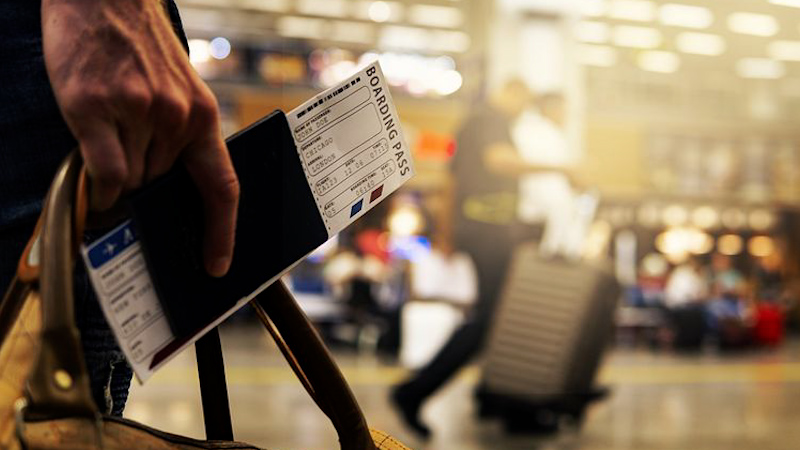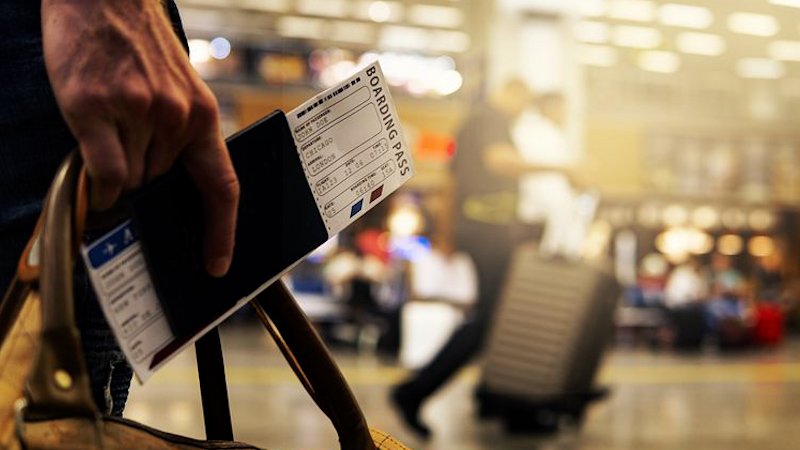
Individuals purchasing airline tickets within the United States may unknowingly have their personal information shared with the US Department of Homeland Security. Recent reports indicate that the Airlines Reporting Corporation (ARC), a data analytics firm that focuses on airline ticket transactions, is selling passenger data to DHS and its Customs and Border Protection (CBP) division.
An insider familiar with U.S. and Canadian airline operations disclosed to Open Jaw that the data being transmitted pertains to tickets sold at U.S. points of sale, which could include flights to Canada, Europe, Asia, and more. This information is raising significant privacy concerns among travelers.
Scope of Data Shared with Homeland Security
According to USA Today, access to airline customer records sold by ARC includes sensitive details such as names, financial information, and complete itineraries. Crucially, this data stems from third-party ticket sales rather than direct purchases from airlines, presumably encompassing purchases made through global distribution systems (GDS) and online travel agencies (OTAs).
The data made available is reportedly updated daily and includes information on over one billion itineraries spanning 39 months. Furthermore, a review by Wired suggests that ARC instructed government agencies not to disclose the origins of this flight data, leading to concerns about transparency.
Industry Reactions and Concerns
Commenting on the situation, U.S. Senator Ron Wyden, a Democrat from Oregon, condemned the practice, stating, “The big airlines—through a shady data broker that they own called ARC—are selling the government bulk access to Americans’ sensitive information, revealing where they fly and the credit card they used.”
It’s noteworthy that the ARC’s board of directors consists of representatives from major airlines including Delta, Southwest, United, American Airlines, Alaska Airlines, JetBlue, Lufthansa, Air France, and Air Canada, thereby highlighting the collaboration among airlines in this data-sharing initiative.
Despite inquiries from Open Jaw, ARC did not respond to requests for comment on these revelations. Insiders expressed concerns that the profit generated from this data is problematic and suggested that travel agents should facilitate the data sharing, thereby benefiting from the financial opportunities this represents.
Implications for Privacy and Security
404 Media reports that officials from US Customs and Border Patrol indicated that access to airline data helps support state and local law enforcement in tracking individuals of interest, a practice that has raised red flags among civil liberties advocates.
In response to concerns surrounding privacy, a Border Patrol official highlighted the agency’s commitment to safeguarding individuals’ rights while fulfilling its missions. “CBP follows a robust privacy policy as we protect the homeland through various environments,” they stated, asserting the need for such data in securing national interests.
Conclusion
The sharing of airline passenger data with the US Department of Homeland Security spotlights the balance between national security and individual privacy. While the collection of such data is justified under the auspices of security, the financial motivations behind these transactions and the lack of transparency raise important questions for travelers regarding their privacy.
As this situation continues to unfold, it remains crucial for consumers to be informed and vigilant about how their data is collected, shared, and utilized by both flight operators and government agencies.


